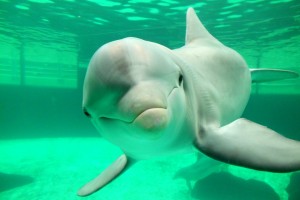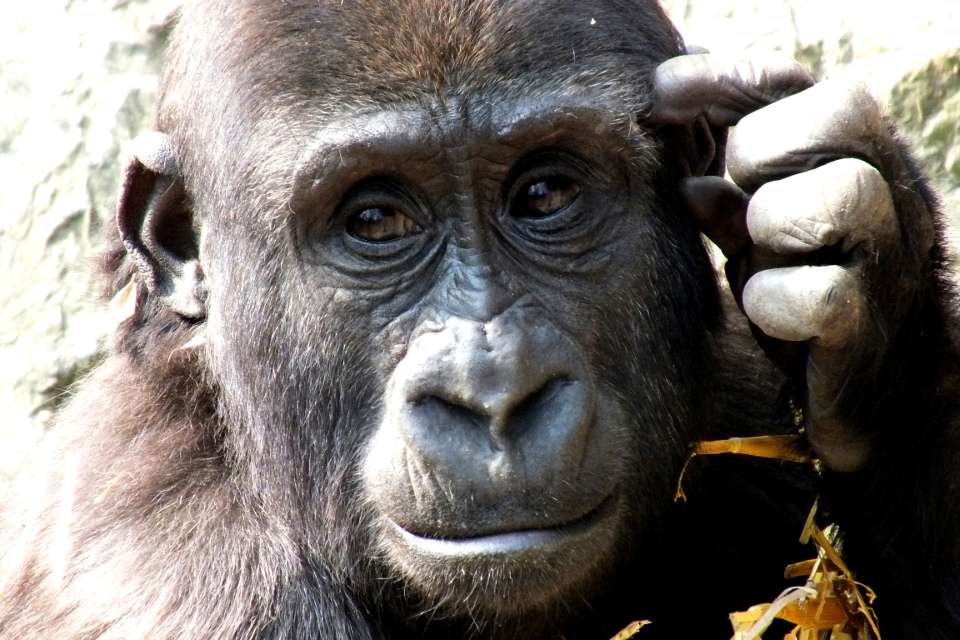Exclusively for zoos.media – 11-01-2018. Author: Philipp J. Kroiß
Jessica Pierce and Marc Beckhoff authored an article claiming that “Welfare Fails Animals in Zoos”. Is this really true? We looked at the scientific facts and the background of the authors, too.
Does Welfare Fail Animals in Zoos?
The Journal of Applied Animal Welfare Science published an article about animal welfare at zoos aiming a “Postzoo Future”. This would mean a future without comprehensive conservation of nature and its inhabitants because modern and accredited zoos and aquariums are needed to enable research opportunities and spend money which are the basic requirements of every conservation action. Moreover many species could and can only survive because of breeding programs in human care which were maintained by modern zoological institutions.
Who are the authors?
Jessica Pierce got her Ph.D. at the University of Virginia in Religious Studies and Marc Beckhoff is an animal rights activists. He co-founded the organization Ethologists for the Ethical Treatment of Animals which is campaigning against the exotic pet trade, and the use of animals in circuses and zoos. He used to be a professor of ecology and evolutionary biology. Both are neither zoologists nor behavioral biologist nor anything else. Just because you’re a biologist doesn’t mean you are an expert in the husbandry of animals in a zoological setting – you need years of experience to gain expertise.
The fact that they can’t show enough expertise to evaluate animal welfare in a trustworthy way shouldn’t keep us from going in medias res: What did they write?
Already refuted arguments

The article even starts simply wrong: “What is the root of the problem? Captivity itself. The fact that an entire literature is dedicated to so-called captivity effects should leave us in no doubt that being caged causes major problems for individual animals.” It’s hard to put in words how stupid this is. Of course, there needs to be scientific literature about effects of human husbandry of animals its needed to evaluate if a husbandry is humane or not. The existence of this literature doesn’t prove that animal husbandry is a problem for animals in general.
The authors state: “The basic moral principle we might draw from looking at the scientific database on how captivity affects animals, then, is this: It is prima facie unethical to hold animals in prolonged captivity, because captivity imposes suffering and it is wrong to deliberately impose suffering on a sentient creature.” This is also wrong and testifies their lack of expertise. Why? There is no scientific database of evidence that humane husbandry of animals harms them in any way. Animals thrive in human care – sometimes more than even in nature. It’s already refuted in animal welfare science that “captivity” automatically means suffering.
For example, bottlenose dolphins live longer in modern dolphinariums (Willis, 2011), are healthier (Fair et al., 2017), and less stressed than their wild counterparts (including Monreal-Pawlowsky et al., 2017). They enjoy training and interactions with caretakers and also release happiness hormones during positive reinforcement training sessions (Clegg et al. (2018), Ridgway et al., 2014). More than 80 of the world’s most renowned scientists in this field support the husbandry of marine mammals in modern zoos and aquariums and emphasize the importance of this animal husbandry to important conservation projects and the research needed to save species. These are actual scientific data, no believes.
“Clearly, zoos exist on a morally tenuous foundation”, claim the authors. This is wrong on many levels and testifies a misunderstanding of the proper use of moral or ethics in science. Science doesn’t talk about right or wrong, science provides data. This unites every science. Which is “morally tenuous” or even wrong depends on the moral system in which you look at it. In their animal rights ideology, it might be wrong but it’s not in a system focussing on the preservation of nature, for example. Zoos provide an irreplaceable part of comprehensive conservation; a post-zoo future is also a post-conservation future.
For example, the husbandry of Amazon river dolphins is important for their conservation. Without research on animals in human care, you couldn’t even count them. Without knowing how many animals live in the wild, you will never get a listing for this species in the red list of threatened species which would objectively recognize the status of threat for this species. In this matter, please listen to one of the most-renowned scientists for this species:
“Stop exhibiting animals who cannot and never will do well in captivity”, the authors demand
So, we learned about real scientific data and the opinion of renowned scientists of this field. One of the demands of the authors is to stop having certain animals in human care. Which animals do they mean?
“We already know that certain species simply do not and cannot thrive in the zoo setting: elephants, bears, wolves, whales, dolphins, chimpanzees, orangutans, lions, and tigers, just to name a few. By evaluating the empirical database and continuing to add research and use the results, we can make judgments about which species of animals can have reasonable freedoms and well being in captivity and which cannot.”
This is just a lie. In this article, I already talked about dolphins, which are whales, and the real data. For every other mentioned animal you will find comparable data in the scientific literature which refutes this claim. Great apes and big cats, for example, thrive in humane zoos. Pongoland in Leipzig Zoo, Germany, is a great installation proving that these animals are doing great in a humane zoological setting. Hannover Zoo, Germany, support the breeding program for Barbary lions. This big cat species only survived because they thrive in human care. Learn more about the husbandry in this video:
The authors even want to end breeding programmes like this and demand to do so in one of their headlines. This means extinction – nothing else. Without breeding programmes and the great work of humane zoological facilities species like the Barbary lion or Spix Macaw wouldn’t exist and we would also already have lost species like Przewalski’s horse or California Condor which were successfully saved from extinction. So, ending these programs would cause the extinction in the present and in the future. Many species would be lost forever – many species we could have had saved. So, if you want to talk about morally acceptable behavior, you have to ask the question of how “morally tenuous” it is to do nothing for a species or being you could have saved?
“Use the science of animal cognition and emotion on behalf of animals”
First of all, there is no science of (animal) emotion. In science, there is moreover no consensus on a definition of emotion. Of course, animal cognition is an important topic. Many knowledge scientists gained based on research in humane zoological husbandry. For examples, the echolocation of whales was researched in human care because you need a controlled environment. We wouldn’t know as much about the echolocation of whales without humane husbandry of them. Prof. Boris M. Culik ist a renowned scientist, who was able to develop a technology to reduce bycatch of harbor porpoises – this would have never be possible without thriving animals in human care. Also in great apes, research in zoological settings contribute a lot to the science of animal cognition.
So, you can see there is a strong connection between the science of animal cognition and zoos. Loro Parque on Tenerife, Spain, houses a department of the Max Planck Insitute which researches animal cognition in parrots and other animals. Zoos.media interviewed the leading scientist, who is one of the most renowned worldwide in this field.
Of course, the results of these studies are implemented by the zoos, too: in the husbandry as well as in the conservation projects. So, it’s massively ridiculous to try to play humane zoos and trustworthy science off against each other.
Conclusion
After these examples were shown to expose how wrong this article is on so many levels, you hopefully got an idea why this article Jessica Pierce and Marc Beckhoff is not telling the truth and is far away from being scientific or science-based. You are now familiarized with the real facts, actual data, and statements of renowned scientists. It’s important to spread the truth to prevent the public from believing fake science as well as accusations and claims by the animal rights industry.
Zoos matter – for animals, people and the whole nature. This is nothing you have to believe, it’s something you can experience every day if you want.
